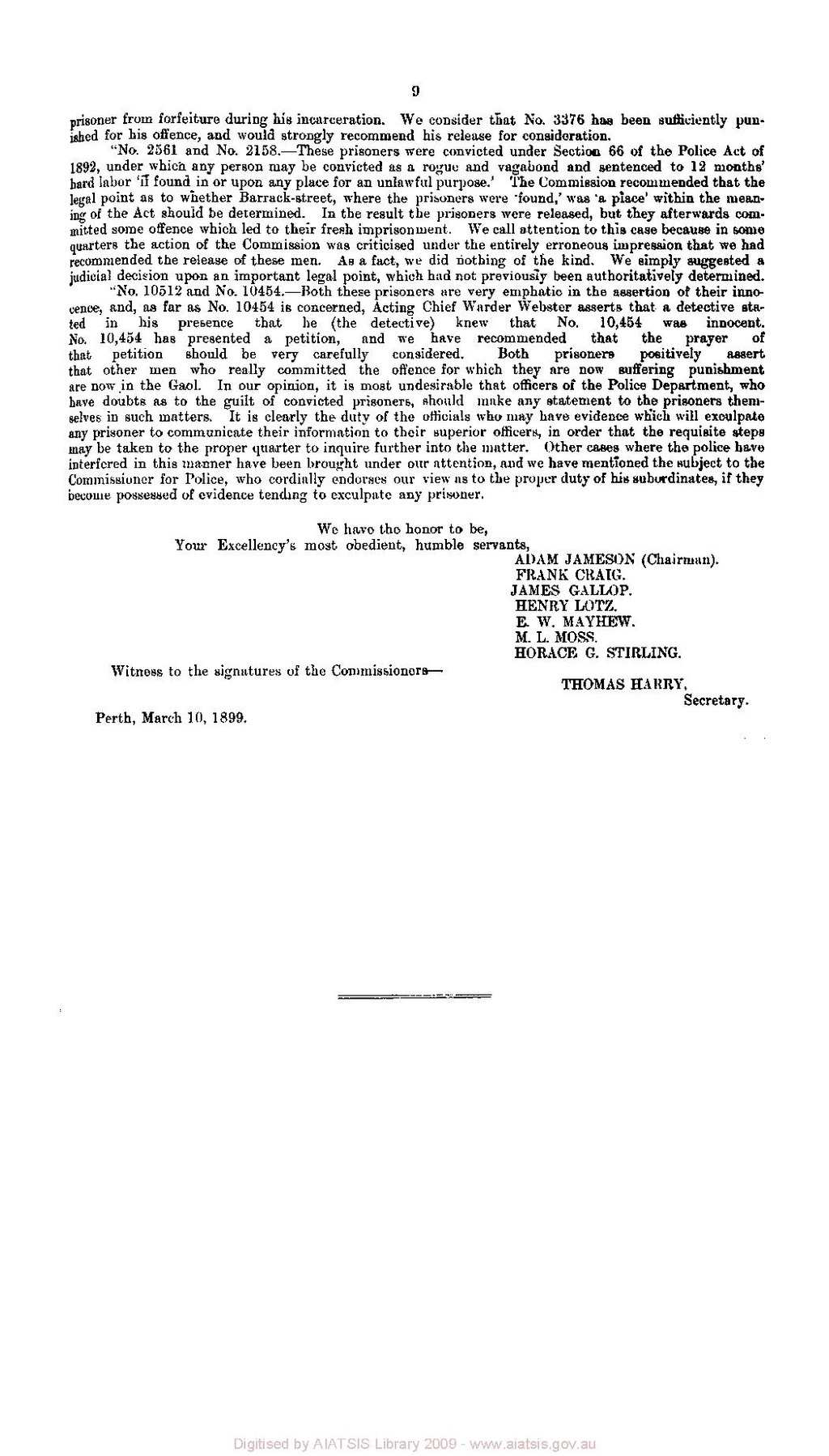9
prisoner from forfeiture during his incarceration. We consider that No. 3376 has been sufficiently punished for his offence, and would strongly recommend his release for consideration.
"No. 2561 and No. 2158.—These prisoners were convicted under Section 66 of the Police Act of 1892, under which any person may be convicted as a rogue and vagabond and sentenced to 12 months' hard labor 'if found in or upon any place for an unlawful purpose.' The Commission recommended that the legal point as to whether Barrack-street, where the prisoners were 'found,' was 'a place' within the meaning of the Act should be determined. In the result the prisoners were released, but they afterwards committed some offence which led to their fresh imprisonment. We call attention to this case because in some quarters the action of the Commission was criticised under the entirely erroneous impression that we had recommended the release of these men. As a fact, we did nothing of the kind. We simply suggested a judicial decision upon an important legal point, which had not previously been authoritatively determined.
"No. 10512 and No. 10454.—Both these prisoners are very emphatic in the assertion of their innocence, and, as far as No. 10454 is concerned, Acting Chief Warder Webster asserts that a detective stated in his presence that he (the detective) knew that No. 10,454 was innocent. No. 10,454 has presented a petition, and we have recommended that the prayer of that petition should be very carefully considered. Both prisoners positively assert that other men who really committed the offence for which they are now suffering punishment are now in the Gaol. In our opinion, it is most undesirable that officers of the Police Department, who have doubts as to the guilt of convicted prisoners, should make any statement to the prisoners themselves in such matters. It is clearly the duty of the officials who may have evidence which will exculpate any prisoner to communicate their information to their superior officers, in order that the requisite steps may be taken to the proper quarter to inquire further into the matter. Other cases where the police have interfered in this manner have been brought under our attention, and we have mentioned the subject to the Commissioner for Police, who cordially endorses our view as to the proper duty of his subordinates, if they become possessed of evidence tending to exculpate any prisoner.
We have the honor to be,
Your Excellency's most obedient, humble servants,
- ADAM JAMESON (Chairman).
- FRANK CRAIG.
- JAMES GALLOP.
- HENRY LOTZ.
- E. W. MAYHEW.
- M. L. MOSS
- HORACE G. STIRLING
- Witness to the signatures of the Commissioners—
- Perth, March 10, 1899.
